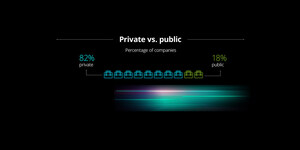NEW YORK, May 16, 2017 /PRNewswire/ -- Contact center executives face challenges with delivering an effortless on-demand experience for customers, while continuing to operate efficiently, results of the third biennial Deloitte 2017 global contact center survey found. The survey, published this week, found that, in a continued trend, customer experience is driving all business decisions, with the daunting task of meeting the demands of high-touch customers who require speed and accuracy.
The survey polled executives from over 450 contact centers in 16 countries about their current and future priorities over the next two years. Among respondents, more than 80 percent cited improving customer experience as the largest driver of investment, as opposed to 3 percent who are focused on revenue growth. As customer needs for on-demand communications grow, phone dominance continues to decline, so contact centers should embrace omnichannel strategies to interact with their customers.
"Our survey results are clear – customer experience-driven, omnichannel engagement strategies are driving the next generation of contact center capabilities," said Andy Haas, managing director, Deloitte Consulting LLP, and customer operations leader. "Customers are known for their wavering habits, in terms of loyalty and demands. With less than half of respondents expecting to rely on the phone, this signifies an expansion of complexity and contact volume, all at the customer's convenience. This makes it vital for contact centers to be nimble and adapt at the pace of the customer."
According to the report, some of the key trends that are expected to influence contact center executives in the coming years are:
- Effortless Customer Engagement through Omnichannel - Consumer needs are constantly evolving, and today, more than ever, customers crave a personalized experience through the channels they prefer. The phone, the once dominant platform, is seeing other channels take its market share (47 percent expected; down from 64 percent today). Although this trend has long been forecasted within the contact center space, few companies have optimized other channel alternatives such as messaging, chat, and video. These developments have created obstacles for contact center executives whose focus had previously been building operations based on phone interaction. Now, they should revisit their talent pool, processes, operations, and capabilities to effectively handle the increasing complexities while diversifying their channels.
- Technology Rules the Future - As customers demand an effortless experience in their channel of choice, executives are investing in solutions that help support customers across channels, providing analytics on their omnichannel operation and enabling technology to improve self-service solutions. One-third (33 percent) of contact center respondents expect to invest in robotic process automation and artificial intelligence by 2019, to help reduce the processing burden on contact center staff or help automate chat inquires. Two-thirds (67 percent) of surveyed organizations plan to invest in advanced analytics solutions in an effort to provide better customer and operational insights.
- Employees – The Most Valued Contact Center Customer - As the front line of contact centers, good talent continues to prove critical in achieving customer satisfaction. To retain the top talent necessary to support the increasingly complex customer demands, contact center leaders are investing in their people. More than 6 in 10 (63 percent) organizations are planning to invest in the expansion of their training programs to increase the effectiveness of their teams, and 53 percent are planning to implement flexible work arrangements, such as work from home programs, to help increase engagement and retention.
"New ways and more frequent paths to consumer engagement have changed the contact center formula for success," said Haas. "These changes involve a sound strategy, long-viewed commitment and willingness to adapt. To be able to succeed, executives should evolve virtually all aspects of the business model from core operations – to how they innovate and adapt. Consumers demand effortless and valuable engagement; the onus is on contact centers to address, prioritize and deliver upon this expectation."
About Deloitte
Deloitte provides industry-leading audit, consulting, tax and advisory services to many of the world's most admired brands, including 80 percent of the Fortune 500 and more than 6,000 private and middle market companies. Our people work across more than 20 industry sectors to deliver measurable and lasting results that help reinforce public trust in our capital markets, inspire clients to make their most challenging business decisions with confidence, and help lead the way toward a stronger economy and a healthy society.
Deloitte refers to one or more of Deloitte Touche Tohmatsu Limited, a UK private company limited by guarantee ("DTTL"), its network of member firms, and their related entities. DTTL and each of its member firms are legally separate and independent entities. DTTL (also referred to as "Deloitte Global") does not provide services to clients. In the United States, Deloitte refers to one or more of the US member firms of DTTL, their related entities that operate using the "Deloitte" name in the United States and their respective affiliates. Certain services may not be available to attest clients under the rules and regulations of public accounting. Please see www.deloitte.com/about to learn more about our global network of member firms.
SOURCE Deloitte
Related Links
WANT YOUR COMPANY'S NEWS FEATURED ON PRNEWSWIRE.COM?
Newsrooms &
Influencers
Digital Media
Outlets
Journalists
Opted In




Share this article